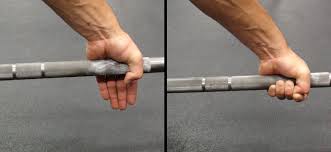grip
英 [ɡrɪp]
美 [ɡrɪp]
- n. 紧握;柄;支配;握拍方式;拍柄绷带
- vt. 紧握;夹紧
- vi. 抓住
- n. (Grip)人名;(英、瑞典)格里普
使用频率:

记忆方法
1. grope gripe, grip.
中文词源
grip 抓住
词源同grab, grapple.
英语词源
- grip
-
grip: [OE] Grip comes from a prehistoric Germanic verb *gripjan, derived from a base *grip-. Variants of this base produced gripe [OE] (which originally meant simply ‘grasp’), grope [OE], and possibly also grab. French borrowed it as gripper ‘seize’, from which English gets the now obsolete grippe ‘flu’ [18].
=> grab, gripe, grope - grip (v.)
- Old English grippan "to grip, seize, obtain" (class I strong verb; past tense grap, past participle gripen), from West Germanic *gripjan (cognates: Old High German gripfen "to rob," Old English gripan "to seize;" see gripe (v.)). Related: Gripped; gripping. French gripper "to seize," griffe "claw" are Germanic loan-words.
- grip (n.)
- c. 1200, "act of grasping or seizing; power or ability to grip," fusion of Old English gripe "grasp, clutch" and gripa "handful, sheaf" (see grip (v.)). Figurative use from mid-15c. Meaning "a handshake" (especially one of a secret society) is from 1785. Meaning "that by which anything is grasped" is from 1867. Meaning "stage hand" is from 1888, from their work shifting scenery.
权威例句
- 1. How much can the President relax his grip over the nation?
- 总统可以对国家的控制放松到什么样的程度?
- 2. Such cars, however, do grip the road well, even in the dry.
- 不过,这种车即使在干燥路面上也表现出了良好的抓地性能。
- 3. Luke answered by tightening his grip on her shoulder.
- 卢克的回应就是把她的肩头抓得更紧了。
- 4. Find the exact grip that allows you to hit the ball hard.
- 找到能让你大力击球的准确握拍方法。
- 5. Harry loosened his grip momentarily and Anna wriggled free.
- 哈里的手稍一放松,安娜便挣脱出来。
